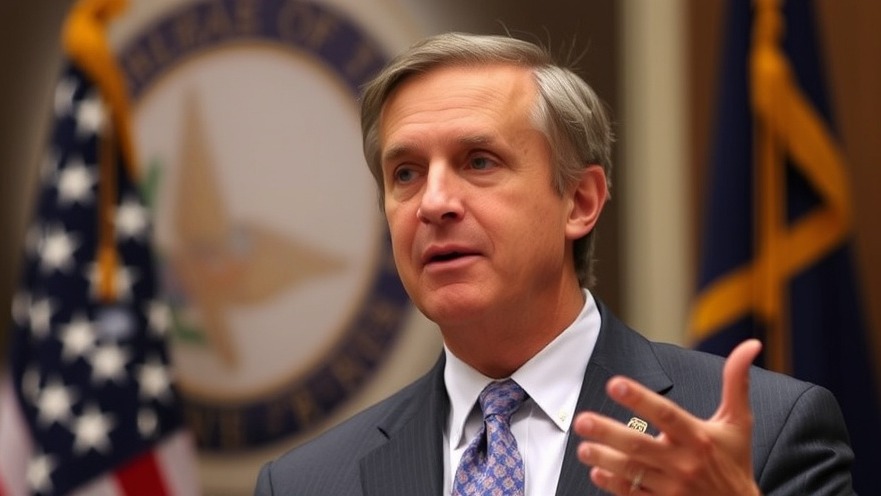
Attorney General Ken Paxton’s Bold Moves to Address Political Violence
In a controversial announcement, Texas Attorney General Ken Paxton declared an initiative to investigate alleged "leftist terror cells" in reaction to recent violent incidents, including shootings targeting ICE facilities. This decision is positioned amidst significant cuts in federal programs aimed at countering domestic radicalization, raising questions about the impact of political rhetoric on law enforcement priorities.
Contextualizing Paxton’s Investigation Amid Rising Political Violence
In recent months, the landscape of political violence in the United States has become increasingly complex. While Paxton attributes the rise of left-wing attacks to a surge in political extremism, notable studies from the Center for Strategic and International Studies paint a different picture, revealing that historically, right-wing violence has been more prevalent and deadly. Events like the El Paso Walmart shooting and the Pittsburgh synagogue massacre underscore this troubling trend.
Exploring the Motivations Behind Political Terror Cells
Paxton's framing of the issue suggests that ideological extremism directly leads to violence, stirring a potentially dangerous narrative. Experts argue that such a simplistic connection between ideology and violent actions fails to consider individual mental health issues or social support deficiencies. As Jason Blazakis, an expert in extremism highlighted, individuals who engage in violence often do so out of a complex mix of personal, psychological, and ideological factors.
Critiques and Concerns Over Naming Leftist Terror Cells
The declaration of leftist terrorism by Paxton has drawn criticism for its broad brushstroke, invoking fears of increased vigilantism or misdirected law enforcement efforts. It raises ethical questions about how such investigations may affect communities labeled as extremist, potentially leading to innocent individuals being scrutinized or harassed due to their political beliefs.
Analyzing the Implications of Paxton’s Approach
By stating that leftist political violence is a “cancer” on American culture, Paxton not only solidifies his stance within the conservative base but also creates a divisive narrative that may further polarize Texas residents. Given that the evolving dynamics of terrorism show shifting patterns of violence among various ideological groups, critics suggest that a focus purely on left-wing extremism may overlook more pressing threats emanating from organized hate groups and radical right-wing factions.
The Future of Political Violence Investigations in Texas
As Paxton’s office embarks on these undercover investigations, there is widespread speculation about how effective or necessary this approach truly is. With low lethality rates connected to left-wing attacks compared to the profound dangers posed by right-wing extremists, it could be argued that attention and resources would be better spent on addressing root causes of violence rather than pursuing ideological enemies.
What This Means for Texas and Its Residents
The ramifications of these investigations could resonate deeply within Texas communities, affecting public perceptions of safety and trust towards law enforcement. With emphasis on perceived leftist threats, Texas voters may find themselves navigating an increased tension in political discourse, where labels and affiliations heavily influence public sentiment and community interactions.
Understanding such political dynamics is crucial as Texas gears up for upcoming elections in 2025, where the implications of Paxton’s investigations may become a focal point in political campaigns. As residents, it is essential to critically engage with these developments and advocate for balanced discourse surrounding extremism and safety.
In light of these ongoing developments, keeping abreast of Texas current events is essential for informed civic participation. We encourage our readers to remain engaged and informed as we navigate these complex times.
 Add Element
Add Element  Add Row
Add Row 



Write A Comment